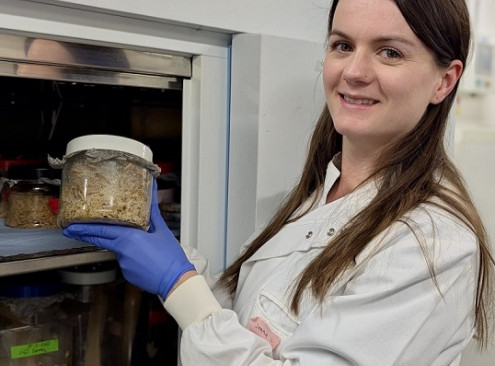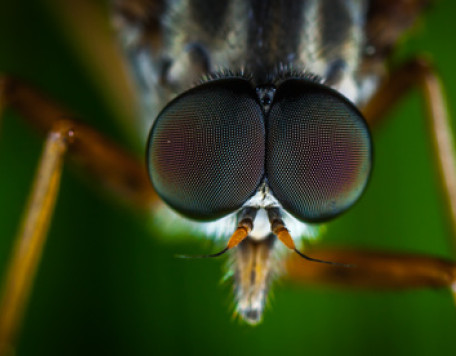© Pint of Science, 2025. All rights reserved.
A biomedical research lab might feel a world way away from nature, but research scientists learn a lot from the natural world. Meet scientists who are applying animal ecology, conservation and zoology to replace, reduce and refine the use of animals in research.
From pest to pioneering better science
Dr Jennie Campbell
(Postdoctoral Research Associate)
Named after Mellona, the Roman goddess of bees and honey, the greater wax moth (Galleria mellonella) is best known for its appetite for honeycomb and beeswax. Once seen primarily as a pest – damaging beehives in the wild and even digesting plastic in the lab – find out how this unassuming moth is replacing mice to study infection and the immune system.

Crafting the perfect cocktail (for fish!)
Professor Rod Wilson
(Professor of Physiology)
Fish breathe water instead of air, but they get a lot more than oxygen through their gills. A small amount of extra salt can make some fish grow four times faster, while high carbon dioxide affects their sense of smell, behaviour and immune responses. Learn more about what’s in water, why it matters, and how the ideal mix of molecules improves animal welfare and the reproducibility of research involving fish.

Map data © OpenStreetMap contributors.
Other The City Gate events
2025-05-21
Insects and Regeneration: Nature's Wildest Tricks
The City Gate
Iron Bridge, Lower North Street, Exeter, EX4 3RB, United Kingdom
2025-05-19
Robots Battling Cancer
The City Gate
Iron Bridge, Lower North Street, Exeter, EX4 3RB, United Kingdom





